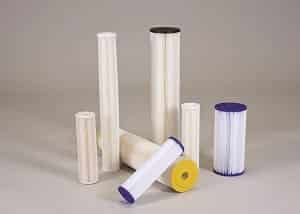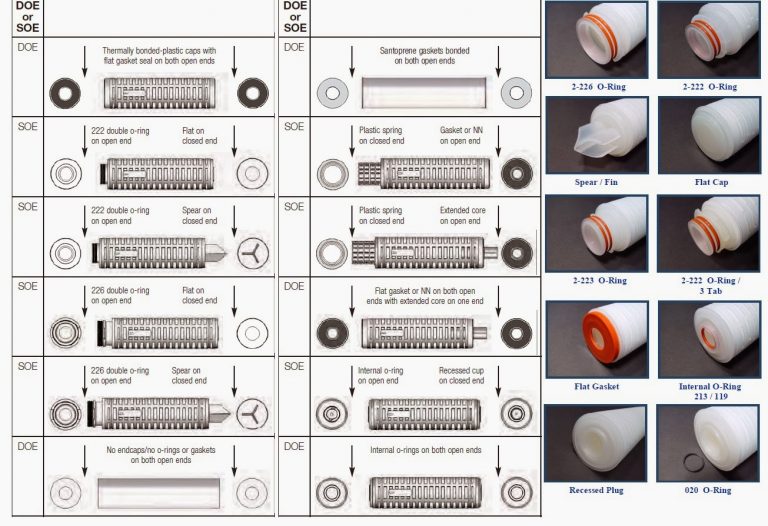Selecting the Perfect Filter Cartridge
Selecting the Perfect Filter Cartridge
As a distributor of water treatment supplies, we are often asked to provide filter cartridges. Most of the time, these requests consist of the client saying: “Hey, I need a 5 micron 20″ long cartridge.” Sounds simple enough; however, there’s more to a filter cartridge than the just these two pieces of information. Below is an overview of what is needed to select an ideal cartridge for your application.

What is the Application?
Knowing the application can provide an idea if an absolute or nominal cartridge is required. An Absolute Cartridge by definition retains 99.9% of the particles within that micron rating. These types of cartridges are typically used for critical applications such as process water in the Pharmaceutical Industry. In most cases, we deal with nominal rated cartridges in which the cartridge retains a majority of the particles of the micron rating that pass through it. For the sake of the above request, let’s say the customer tells us he needs a cartridge filter as pretreatment before a carbon filter. From our experience with this application, we now know that a nominal rated cartridge will work fine, we just need to a little more information,
Do You Have Your Existing Cartridge Part Number?
Obviously, if a customer can provide a brand and a part number, this makes the process a smooth transition. There are a lot of different cartridge manufacturers, such as, Pall, Shelco, Watts, Millipore, etc. Usually, they offer very similar products that can be used within an application. If it is okay with a customer to offer a substitute, we will try to find a cartridge we carry that will work for them. In this case, they do not have a part number, so we need to get a little more information.
What Are Your Cartridge Dimensions?
Since we already know the length of the cartridge, 20 inches, the next bit of information we need to determine is the diameter of the cartridge. From our research, the most common diameter we have come across is a 2-3/4″ cartridge. Other diameters we have seen are 2-1/2″ and sometimes 2″ diameter cartridges. Another popular diameter is the 4-1/2″ size, most commonly referred to as, “The Big Blue Cartridge”, because of the large blue colored housing these cartridges fit into. If the customer is not sure, we ask that they obtain diameter measurement from a micrometer or caliper or even put a ruler across the cartridge to get an idea. A measurement of the housing will also help us select the right diameter cartridge. For this application, 2-3/4″ diameter is what is needed.
What Is Your Cartridge Made Of?
Next, we inquire about the material of the cartridge and the type. Cartridges can be made of different materials, such as, Polypropylene, Polyethersulfone PES, Cotton, Rayon, etc. These materials can made into different types of cartridges like melt blown, string-wound, and pleated. Because we focus primarily on potable water treatment, we most commonly sell FDA grade Polypropylene, or Cotton. Cartridge manufactuters also provide information on common applications their cartridges can be used. For our case of a pretreatment cartridge before a carbon filter, a melt blown or string wound cartridge will work fine in this application with FDA Polypropylene or Cotton.
What Does the End Look Like? Gasket Material?
Cartridges can have different types of ends, from a double open ended, single open end – 226 O-ring with Flat end, single open end 222 O-ring; Fin(Spear), etc. And, different types of gasket material from Buna N, Silicone, Teflon, etc.
If a customer is not sure, we can either send this document along to them, or they can easily send us a photo of what they have which will allow us to determine the end configuration. The gasket material becomes important when you are dealing with something other than potable water. Typically, there will not be a gasket. In the case of this application, we determine the cartridge is a double open ended cartridge with no gasket.
View more resources to help you here and contact Complete Water Solutions today with any questions about your industrial reverse osmosis system!


